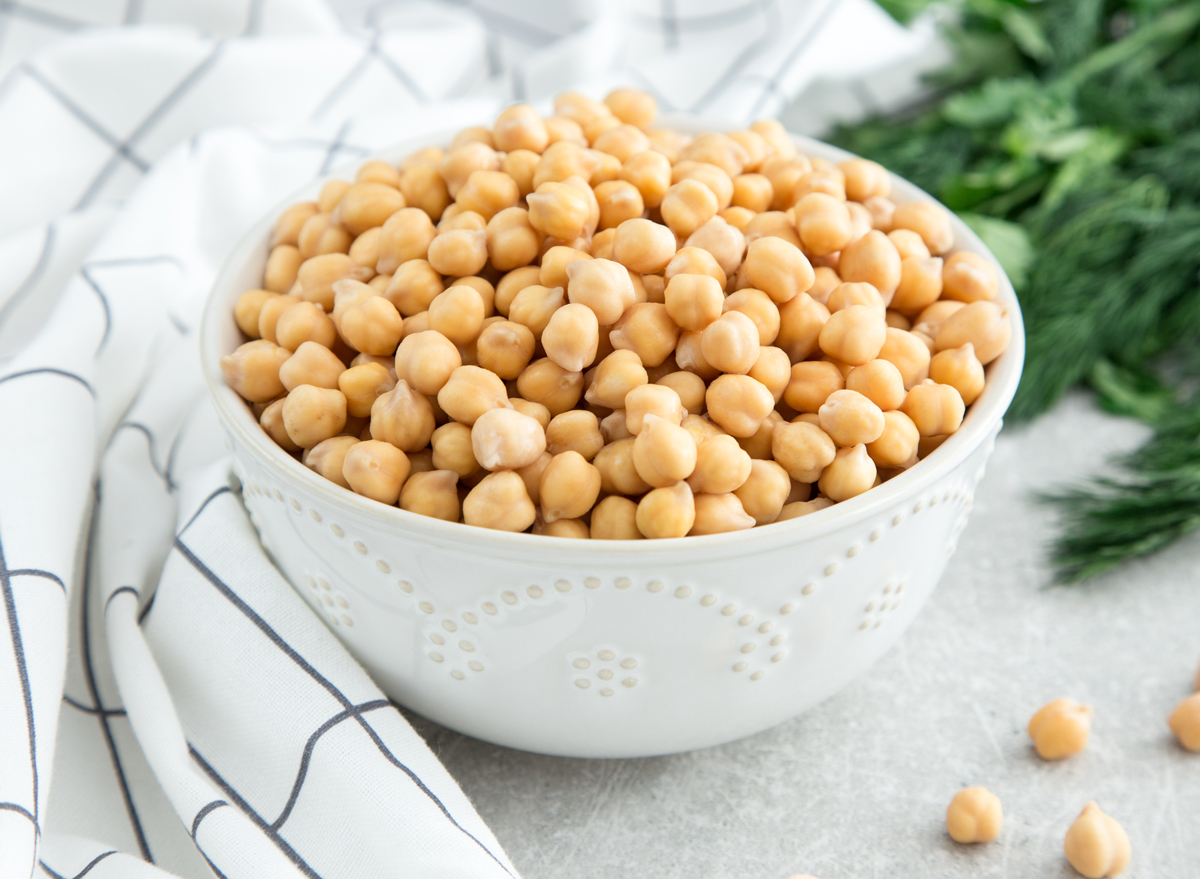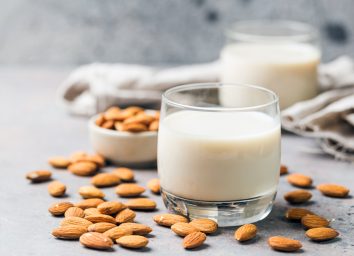One Major Side Effect of Eating Chickpeas, Says Science

Chickpeas, also known as garbanzo beans, are not just a tasty addition to meals; they're also highly versatile, making them a favorite in both main meals and healthy snacks. Whether mashed into a homemade hummus or seasoned and roasted as a crunchy snack, chickpeas can be enjoyed in a number of ways—almost all of which are highly nutritious.
However, like many foods, this legume has potential negative side effects, which you need to be cognizant of (especially if you eat too much of it). Chickpeas can often cause bloating and gas, so knowing your limit is key.
Why chickpeas can cause gas
The gas and bloating discomfort caused by eating chickpeas can be particularly pronounced in individuals with irritable bowel syndrome (IBS). The culprit lies in chickpeas' high content of indigestible saccharides (sugars), particularly oligosaccharides, which are sugars that the body struggles to digest.
According to the Cleveland Clinic, when these indigestible carbohydrates reach the intestine, they become food for bacteria. These bacteria break them down through a process of fermentation, producing excess gas as a byproduct. For those with sensitive digestive systems, this can lead to discomfort and bloating in the abdomen.
The fiber content in chickpeas further exacerbates the issue. Fiber is essential for digestive health, but consuming too much at once can overwhelm the digestive system, leading to gas and bloating. Chickpeas are among the best high-fiber foods, containing over 6 grams of fiber per 1/2 cup.
The solution? Portion out your chickpeas & rinse before eating.
If you've ever eaten a lot of chickpeas in one sitting, you've probably experienced this feeling firsthand.
To mitigate the undesirable bloating and gassiness, moderate your chickpea intake. Portion control is key—stick to around 1/4 cup per serving.
Additionally, rinsing chickpeas before consumption can help remove some indigestible sugars on their surface, reducing the likelihood of gas and bloating.
It's worth noting that individual tolerance levels vary. Some people may find they can enjoy larger portions without issue, while others may need to be more cautious. Experimentation is key to finding what works best for your body.
Understanding the science behind why chickpeas cause gas can help individuals make informed dietary choices. By being mindful of portion sizes and considering personal tolerance levels, you can continue enjoying chickpeas' many benefits without the discomfort of excess gas.
And next time you're grocery shopping, don't miss these 11 Best Hummus Brands, According to Dietitians.
This story has been updated to include new information, fact-checking, and copyedits.
- Source: Han, I. H., & Baik, B. (2006). Oligosaccharide content and composition of legumes and their reduction by soaking, cooking, ultrasound, and high hydrostatic pressure. Cereal Chemistry, 83(4), 428–433. https://doi.org/10.1094/cc-83-0428
- Source: Clinic, C. (2024, March 19). The best and worst foods for IBS. Cleveland Clinic. https://health.clevelandclinic.org/take-control-of-ibs-with-low-fodmap-diet/
- Source: FoodData Central. (n.d.). https://fdc.nal.usda.gov/fdc-app.html#/food-details/173757/nutrients









